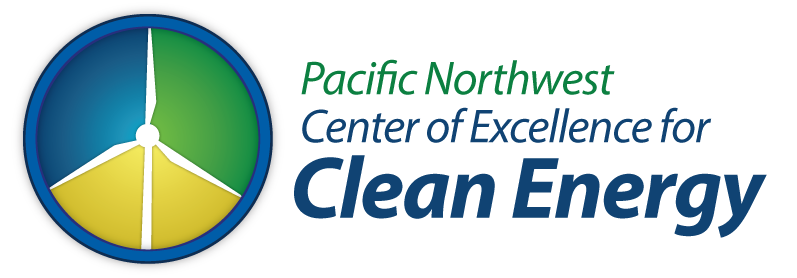
Recently a panel of industry leaders gave insider tips on hiring for jobs in the energy and engineering fields as part of the Center’s Energy Job Seeker Workshop. They shared examples based on their own experiences navigating the hiring process as well as serving as hiring managers and watching people either succeed or spoil their own chances at a dream job. Here’s a list of advice taken from the session.
- It’s never too early to start preparing. Dan Quillen, Operator of Bonneville Power Administration’s Olympia Substation, says he began applying for jobs as soon as he enrolled as a student in Centralia College’s Energy Tech program. While some might say that’s a bit too early, he maintains it was a good experience that taught him how to apply for jobs online, take tests, craft a resume, and prep for an interview.
- Cast a wide net when looking for your dream job. “If you really want to work in this industry and are stuck on not moving, good luck,” says Quillen. “There are so many jobs in the power industry elsewhere that people aren’t even aware of.” His first position was in Colorado, and he argues that for a great job with great pay, you need to be prepared to make a trip to the job site for a final interview if needed.
- Become an expert on the industry you want to work in. Potential employers expect students to be able to talk about their industry in the interview. Randy Stearns, Community Relations Officer for Tacoma Power, previously worked on media for the Seattle Mariners but quickly versed himself on the energy industry to the point where he can comfortably give visitors tours of Tacoma Power dams. “I’m an example of how yes, you too can become a hydro power expert.” One way to learn more is to follow the Center of Excellence’s posts on Twitter, Facebook, and LinkedIn.
- Express your knowledge and confidence throughout the hiring process, from the resume to the final interview. Micah Goo, Generation and System Operations Manager for Centralia City Light, has seen his share of vague resumes and unprepared job candidates. “One of my pet peeves is a timid response to answers,” he says. “You may be good at your job, but if you don’t have confidence about your job, we’ll move on to the next person.” This includes body language—look people directly in the eyes, sit up straight, leave your arms comfortably at your sides instead of crossing them.
- Be thorough with your application, whether on paper or online. “[At BPA], when we rate applicants, if you leave anything blank, [your application] goes into the trash,” says Quillen. He points out that if you’re applying for a detail-oriented job and demonstrate that you miss details on your job application, you’re likely not fit for the job.
- Practice how to answer interview questions. Even if you think you don’t have relevant on-the-job-experience, the panelists agreed students would do well to pull experiences from their lives that can be applicable. For example, if asked about following instructions to build a system, you might describe putting together your kid’s swing set.
- Think of your career in terms of relationship-building. “Your resume is that one snapshot you have,” says Stearns. “Make it easy for the person to pick out why you’ll make a good employee. When you’re interviewing, talk to them in a way that shows you know what you’re doing. You want to show you’re a good fit. Show you’ll be a great teammate.”
- It’s a good idea to begin reaching out to experts in your field for advice and mentorship, but remember to be solicitous with their time. Connect with people online through industry groups on LinkedIn, including the Center’s own discussion group. Attending industry conferences is also a way to meet people and begin networking.
- Learn everything you can about the companies you want to work for. “Now it’s easy; you’ve got the Internet,” says Goo, who recalls spending hours in the library researching companies in his early days. Be prepared for the question, What can you tell me about our company?
- Remember polish and manners. “We look at grammar,” says Quillen. “We look at everything. If 650 people apply for a job paying $100-150K, you’ve got to be a flawless standout.” Every single one of the panelists could recall rare job applicants who took the time to send thank-you notes afterward, before they knew whether or not they got the job.
- Express your enthusiasm for the job and the industry. “Come into the interview with a great attitude,” advises Goo. “Show you’re happy to be there, that you’re engaged and asking questions.”
Armed with this advice, you should be well-poised to take advantage of an industry with lots of opportunities as established workers look toward retirement, vacating their positions, and demand in the clean energy field spurs growth. We wish you the best of luck! — By Lisa Brunette, a writer/consultant who blogs at www.catintheflock.com.
